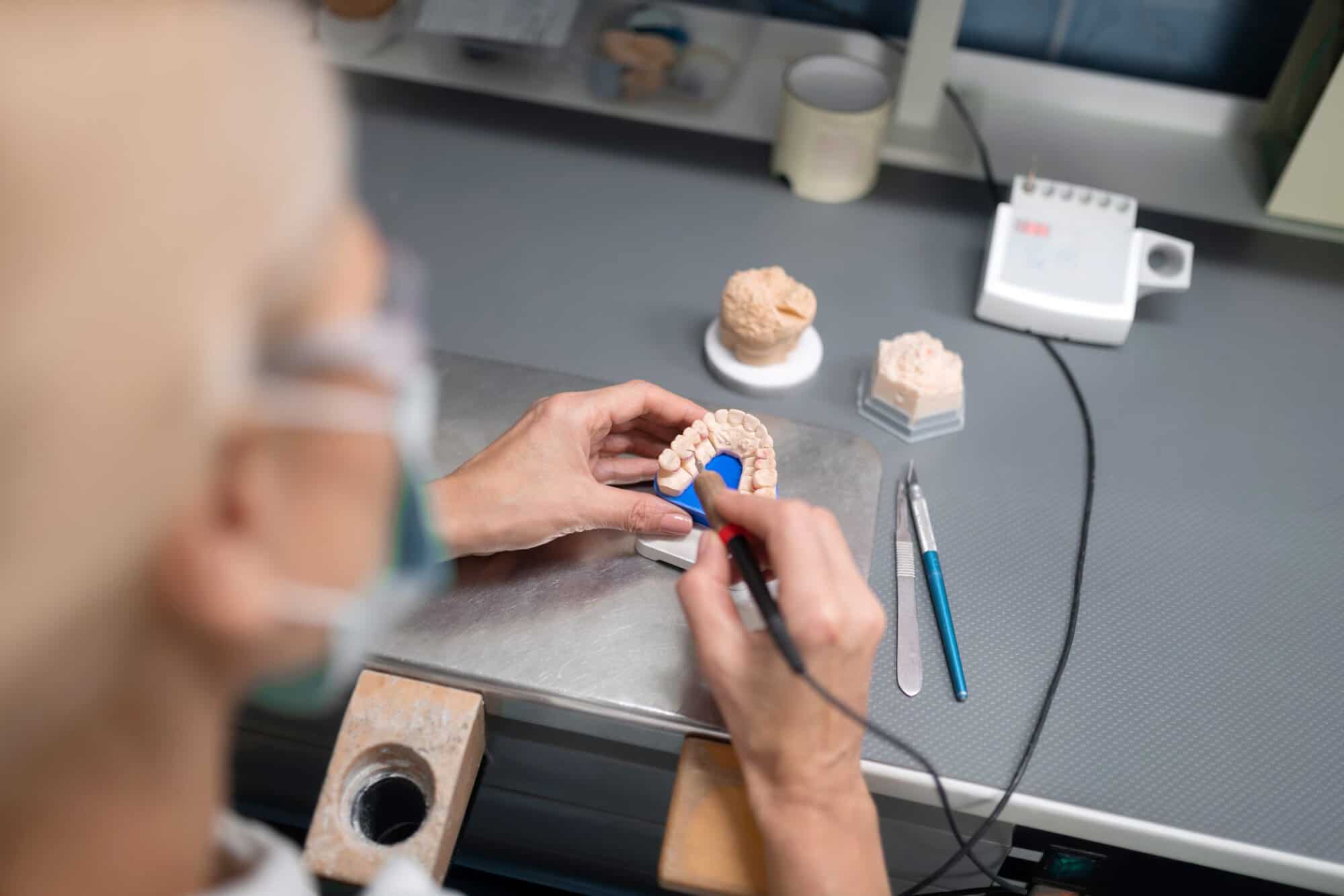
Veneers 101: How Long Do Veneers Last?
Dental veneers are a popular option that will make your smile look fantastic and are an easy way to enhance your overall appearance and improve your self-esteem.
Taking care of your teeth is essential; most people feel better when they like their smile. Sometimes things happen, whether it is an accident, genetics, or poor oral health, that create the need or desire to invest in dental veneers.
Below we will discuss how long veneers last, the different types of dental veneers, and how to best take care of them to ensure you get the most out of your investment.
What are Dental Veneers?
Dental veneers are widely used to improve the appearance of a patient’s smile and are thin shells placed onto the front of your teeth to make them even, bright, and white and disguise imperfections or damage.
There are several factors to consider when deciding if you want to get veneers, including longevity, cost, oral health, and other considerations that can influence whether you choose porcelain laminate veneers, composite resin veneers, or another alternative.
Types of Dental Veneers
Porcelain veneers generally last ten years or longer, while composite veneers will most likely need to be replaced sooner as they last approximately 4 to 8 years. We will review some of the pros and cons of the two types of veneers.
Porcelain Veneers
Porcelain veneers are thin porcelain layers glued to the front of your teeth. The benefits include the following:
- Are more stain resistant and more durable than composite veneers
- Look more like natural teeth
- Have a longer lifespan than composite veneers
The drawbacks to porcelain veneers include:
- They are more expensive than composite
- Require a significant amount of enamel to be removed from your teeth
- If they are damaged, they must be replaced, which usually takes three or more days
Composite Veneers
Composite veneers are created from a synthetic mixture of resin/plastic and glass and applied to your teeth one layer at a time. The benefits include:
- They are more affordable than porcelain veneers
- Any cracks or chips are easily repaired
- The amount of enamel that needs to be removed from your natural teeth is less than with porcelain veneers.
The drawbacks to composite veneers include:
- Being less durable
- Stain more easily
- They are not as natural in appearance and look bulkier
- Shorter lifespan than porcelain veneers
Good Candidates for Dental Veneers
Talk to your dentist to determine the best way to improve your smile and oral health. If you have teeth that are:
- Chipped, broken, or cracked
- Discolored or stained
- Diastema or large gaps between your front teeth
- Undersized or uneven teeth
- Oddly shaped, crooked, or eroded teeth
However, there may be better options than dental veneers if you have gum disease or severely damaged teeth.
Best Tips for Maintaining Dental Veneers
Now that you have your beautiful white bright smile, you want to do everything you can to maintain your veneers properly.
#1. Avoid Grinding Your Teeth
Bruxism or teeth grinding or clenching can shorten the lifespan of your veneers if you do it frequently. Make sure you address it with your dentist to find a solution to help reduce the risk of excessive wear, protecting your beautiful smile and investment.
#2. Maintain a Good Oral Health Routine
Good oral health is essential whether you have veneers or your natural teeth. Veneers are an investment, and you want to ensure they last as long as possible, so brushing twice daily and flossing must be part of your daily oral health routine. Include regular dental visits and cleaning to keep your veneers white and bright and to allow them to check for any damage.
#3. Use a Soft Bristle Toothbrush
A toothbrush with hard bristles may damage your veneers, gums, and natural teeth. A soft toothbrush is best, especially with porcelain veneers, because they are polished using a fine polish to create a shine. Hard toothbrushes will cause the shine to wear down much faster, leaving your smile looking dull.
#4. Avoid Hard Foods
Porcelain veneers are very durable; however, they may become damaged or chipped if you chew hard foods or objects, including fingernails, plastic, or pencils.
#5. Avoid Smoking
Smoking can lead to staining and discoloration of your veneers. Smoking also can lead to further oral health damage requiring other treatment or veneers falling out or needing to be removed if your underlying teeth become more damaged.
#6. Avoid Darker Pigments
Drinks and foods with larger pigments can stain your natural teeth and veneers. Common beverages and foods that can stain your surfaces include coffee, tea, wine, blueberries, blackberries, dark chocolate, and more.
Looking for Lasting Veneers? Carrie Muzny DDS Has the Answers You Need!
We want you to look and feel your best! Dental veneers may be the perfect option to improve your smile.
At Carrie Muzny DDS, we can help you decide which approach is best for you and your oral health. Whether you need cosmetic surgery, restorative and preventative dentistry, surgery, professional teeth whitening, and veneers, our team of highly trained dentists will care for you with kindness, compassion, and professionalism.
We offer the finest dental care for the whole family in The Woodlands area. Contact us today to book an appointment or consultation, and we will create a personalized treatment plan for you!

